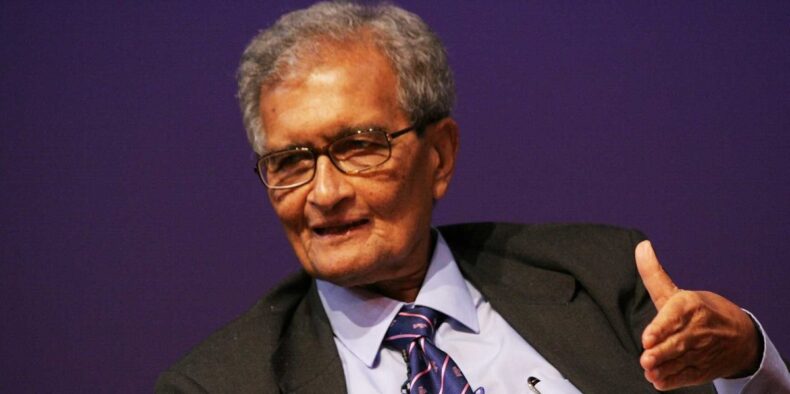Opposition leaders from 26 political parties are scheduled to convene for a meeting in Bengaluru on Monday and Tuesday to discuss and strategize for the upcoming general elections.

Nobel laureate Amartya Sen has expressed his support for ongoing discussions among non-BJP parties to form a federal front for the upcoming general elections in India. Sen emphasized the importance of power-sharing in a democracy and highlighted the vulnerability faced by minority parties due to the dominance of majority votes. He suggested that opposition parties should unite to balance the power dynamics rather than remain vulnerable individually.
Sen referred to the recent opposition conclave in Patna and noted that a similar approach is expected in the upcoming meeting in Bengaluru, where leaders from 26 parties, including Congress, JD(U), RJD, Trinamool Congress, Samajwadi Party, DMK, AAP, CPI(M), CPI, CPI(ML), Shiv Sena, and NCP, will discuss strategies for the 2024 general elections.
Regarding the situation in Manipur, Sen called for a just and powerful intervention by the central government to address the ethnic strife that has resulted in numerous casualties. He expressed disappointment with the response of the Prime Minister, hoping for a statement that acknowledges the situation in a fair and balanced manner.
Sen also commented on the defamation case against Congress leader Rahul Gandhi, expressing his concern about the direction India may be heading in when it comes to freedom of expression. He mentioned that he could not recall any Member of Parliament facing arrest or losing their seat due to a similar case and considered it unfortunate if India is moving in that direction.
When asked about the Uniform Civil Code (UCC), Sen expressed skepticism about its constructive role, indicating his surprise if it were to have a positive impact.The statements attributed to Amartya Sen are based on his interview with PTI (Press Trust of India) during his recent visit to India.
Amartya Sen emphasized the importance and significance of the Indian Constitution, highlighting that it was a well-considered structure crafted by the Constituent Assembly. He acknowledged the extensive deliberations and discussions that took place during the constitution-making process, which allowed various perspectives and viewpoints from different sides of the Indian political spectrum to be expressed. This process ultimately led to a consensus being reached.
Regarding the Uniform Civil Code (UCC), Sen expressed his concerns and worries about its potential negative consequences for India’s democratic experiment. He questioned the intentions and objectives behind the implementation of the UCC and suggested that it may have adverse effects on the diversity and pluralism of Indian society.
Opposition meet in Bangalore
A significant gathering of opposition leaders, including Mamata Banerjee, the Chief Minister of West Bengal, Sonia Gandhi and Rahul Gandhi from the Congress party, Akhilesh Yadav, the Chief of Samajwadi Party, and M.K. Stalin, the Chief Minister of Tamil Nadu, arrived in Bengaluru on Monday to attend the opposition meeting.
The meeting in Bengaluru will be attended by several opposition parties over the course of two days. The discussions will cover various topics such as seat sharing, enhancing coordination and communication among the parties.
The parties will deliberate on the possibility of giving the opposition alliance a formal name and establishing a common program. However, there are differing opinions within the alliance regarding these matters. To facilitate interaction and networking among the attendees, a dinner will be hosted by Siddaramaiah, the Chief Minister of Karnataka, today.












